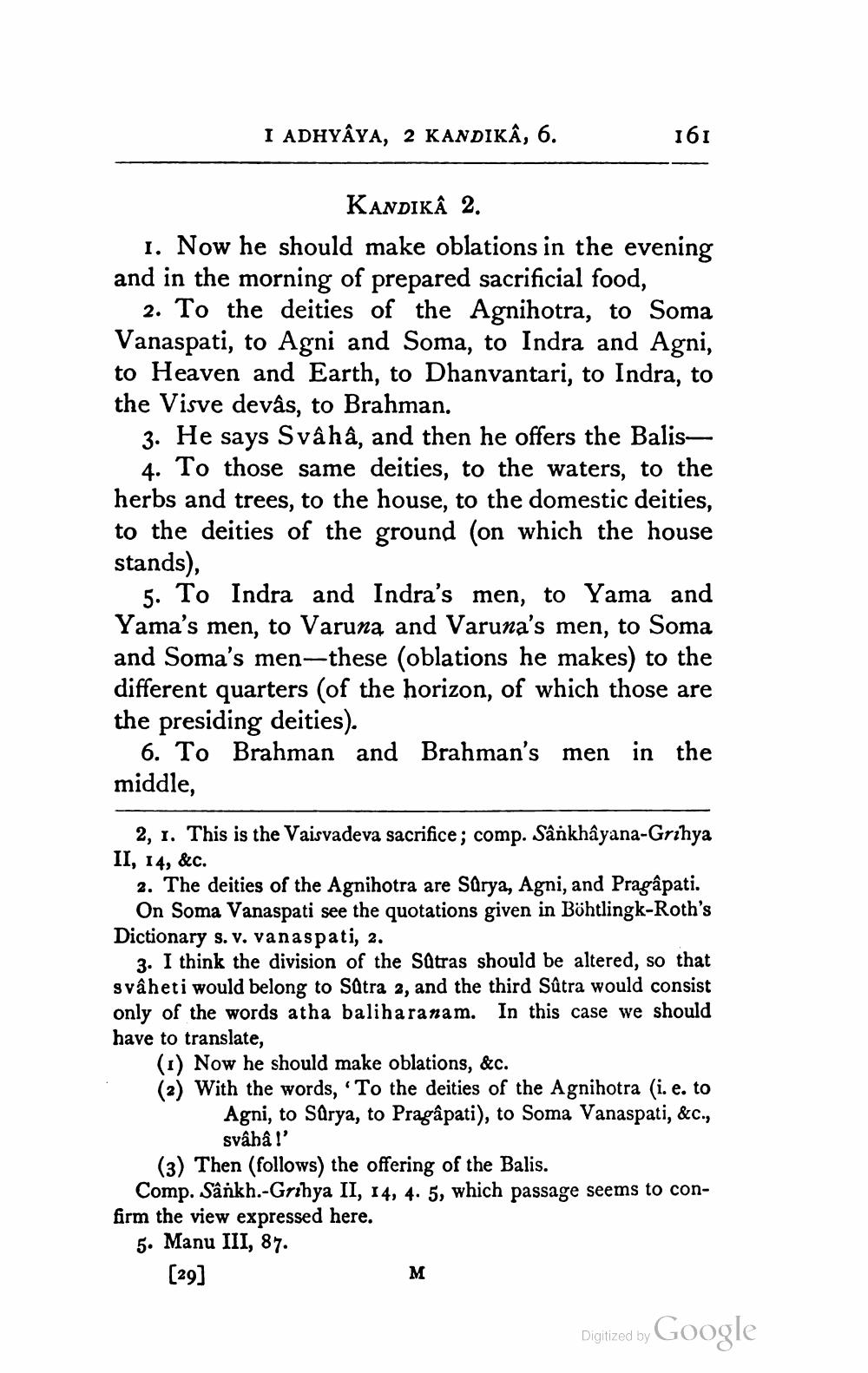________________
I ADHYAYA, 2 KANDIKÂ, 6.
161
KANDIKÂ 2. 1. Now he should make oblations in the evening and in the morning of prepared sacrificial food,
2. To the deities of the Agnihotra, to Soma Vanaspati, to Agni and Soma, to Indra and Agni, to Heaven and Earth, to Dhanvantari, to Indra, to the Visve devâs, to Brahman.
3. He says Svâ hâ, and then he offers the Balis
4. To those same deities, to the waters, to the herbs and trees, to the house, to the domestic deities, to the deities of the ground (on which the house stands),
5. To Indra and Indra's men, to Yama and Yama's men, to Varuna and Varuna's men, to Soma and Soma's men—these (oblations he makes) to the different quarters (of the horizon, of which those are the presiding deities).
6. To Brahman and Brahman's men in the middle,
2, 1. This is the Vaisvadeva sacrifice; comp. Sânkhâyana-Grihya II, 14, &c.
2. The deities of the Agnihotra are Sarya, Agni, and Pragâpati.
On Soma Vanaspati see the quotations given in Böhtlingk-Roth's Dictionary s. v. vanaspati, 2.
3. I think the division of the Satras should be altered, so that svaheti would belong to Satra 2, and the third Sûtra would consist only of the words atha baliharanam. In this case we should have to translate, (1) Now he should make oblations, &c. With the words, To the deities of the Agnihotra (i. e. to
Agni, to Sûrya, to Pragậpati), to Soma Vanaspati, &c.,
svâhâ !' (3) Then (follows) the offering of the Balis. Comp. Sânkh.-Grihya II, 14, 4.5, which passage seems to confirm the view expressed here. 5. Manu III, 87.
[29]
Digitized by Google




